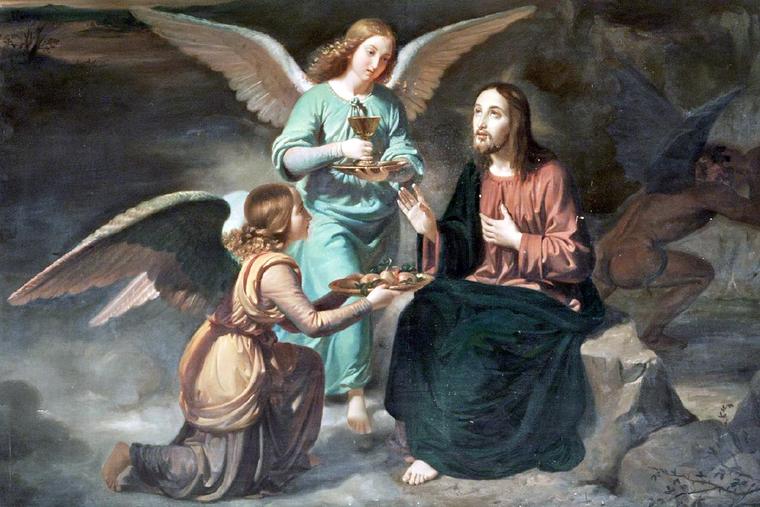When You Fast, Do Not Look Gloomy Like the Hypocrites
‘The interior penance of the Christian can be expressed in many and various ways. Scripture and the Fathers insist above all on three forms, fasting, prayer, and almsgiving …’ (CCC 1434)

“For Thee my soul hath thirsted; for thee my flesh O how many ways.” —St. John of the Cross, The Dark Night of the Soul, Book II, xi.
Like a great deal of the customs of our faith, Christians took the tradition of fasting and abstinence from the Jews who used it in many of their religious rituals (1 Kings 21:9; 12; Psalm 69:10; Isaiah 58:4-5; 58:6; Jeremiah 36:6; Daniel 9:3; Joshua 2:12; Zechariah 7:3; Mark 2:18; Luke 2:36; Act 13:2; Act 14:23).
Fasting is not meant to punish anyone. If it were, then the same could be said of people who are dieting or otherwise restrict their diets for the sake of health or exercise. Rather, practices like fasting and abstinence are meant to heighten awareness of the holy and of the existence of pain and suffering in the world.
Fasting and abstinence should bring joy into one’s life. If it doesn’t, you’re doing it wrong. As Christ says (Matthew 6:16-18):
And when you fast, do not put on a sad face as the hypocrites do. They neglect their appearance so that everyone will see that they are fasting. I assure you, they have already been paid in full. When you go without food, wash your face and comb your hair, so that others cannot know that you are fasting — only your Father, who is unseen, will know. And your Father, who sees what you do in private, will reward you.
Good works, including almsgiving, penance and fasting, are not means of going to Heaven. Instead, they are signs of the joy we share as children of God. They are signs that our faith is the truth. It’s insufficient to suggest that simply believing in God’s existence is enough to be with him for all eternity regardless of how we behave. Instead, we need to be instilled with his love to enter Heaven. Once instilled with this love, we can then give birth to it into our world (Revelation 3:15-17).
We owe a great deal to those who allow us to love them. We love our spouses, parents, children and friends and they are due a tremendous amount of honor, respect and admiration from us. The same is required of our relationship with the Lover of Mankind. Fasting, like other penances, is our way of thanking him. After all, how much could we thank and love him if we ignored our duty and simply lounged on the couch in front of the television?
Despite the claims of those who are ignorant of spirituality and who believe Christians shouldn’t bother with asceticism, the truth is that spirituality is impossible without it. Fasting is a gift we give to God. Fasting shows our repentance, our dedication and our love. God specifically asks for it in the Scriptures (Psalm 50:7-14):
Listen, My people and I will speak; I will testify against you, Israel. I am God, your God. I do not reprimand you because of your sacrifices and the burnt offerings you always bring me. And yet I do not need bulls from your farms or goats from your flocks; all the animals in the forest are mine and the cattle on thousands of hills. All the wild birds are mine and all living things in the fields. If I were hungry, I would not ask you for food, for the world and everything in it is mine. Do I eat the flesh of bulls or drink the blood of goats? Let the giving of thanks be your sacrifice to God and give the Almighty all that you promised.
- Keywords:
- fasting
- penance
- asceticism















